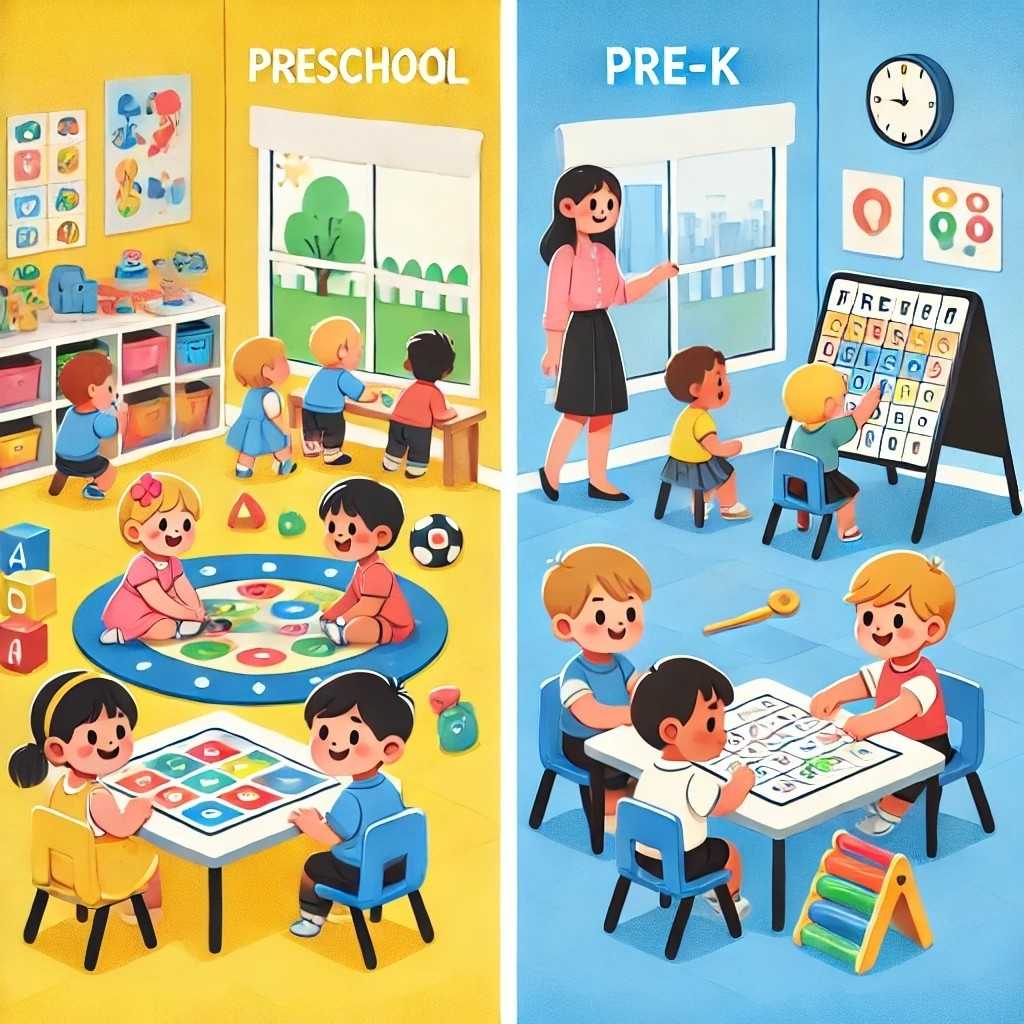Imagine a world where children learn to navigate challenges with grace, solve conflicts with empathy, and take responsibility for their actions—all without the need for harsh discipline. This is the essence of Montessori discipline, a gentle yet powerful approach that fosters respect, responsibility, and self-regulation. Unlike traditional methods that rely on punishments and rewards, Montessori discipline focuses on guiding children through real-life experiences and natural consequences. Understanding the pros and cons of Montessori discipline can help parents and educators create an environment where children develop these essential life skills naturally.
Core Principles of Montessori Discipline
1. Respect for the Child
In a Montessori setting, children are seen as capable, independent individuals with their own thoughts and emotions. By treating children with respect, adults set the foundation for self-respect and confidence.
Instead of barking orders or using punitive measures, Montessori educators communicate calmly and respectfully. For example, rather than demanding, “Sit down now!”, they might say, “I see you have a lot of energy. Would you like to take a deep breath before we sit together?” This approach nurtures cooperation rather than resistance, creating a more peaceful learning environment.
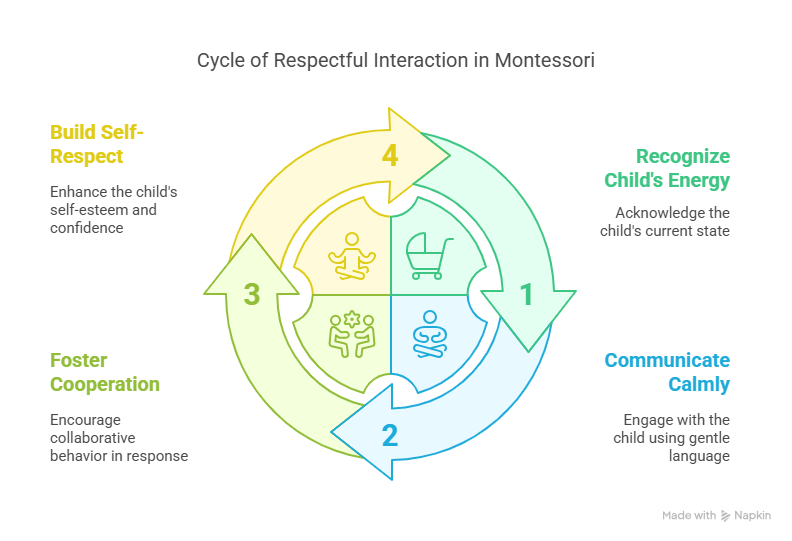
2. Freedom Within Limits
A common misconception about Montessori discipline is that it allows children to do whatever they want. In reality, it is about offering controlled freedom—giving children choices within clear boundaries.
For example, a child may be free to choose their learning activity but must return materials to their proper place after use. This structure fosters independence while instilling a sense of responsibility. When children understand their boundaries, they feel safe and are more likely to make respectful choices.
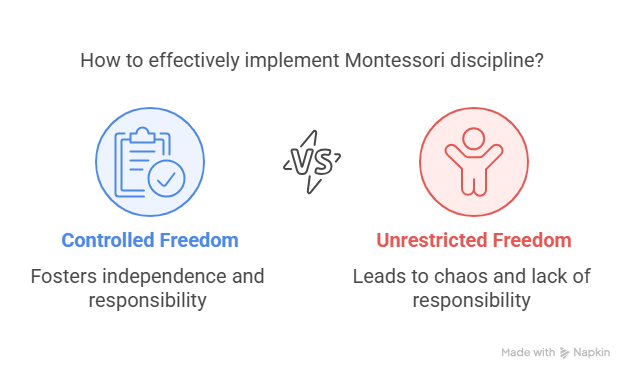
3. Natural Consequences Over Punishments
Rather than relying on external punishments, Montessori discipline teaches accountability through natural consequences. This means that children experience the logical outcomes of their actions, helping them internalize responsibility.
For instance, if a child spills water, instead of scolding them, a Montessori teacher might hand them a towel and say, “Oops, let’s clean this up together.” The lesson? Mistakes happen, and they come with real-world responsibilities—not shame or punishment.
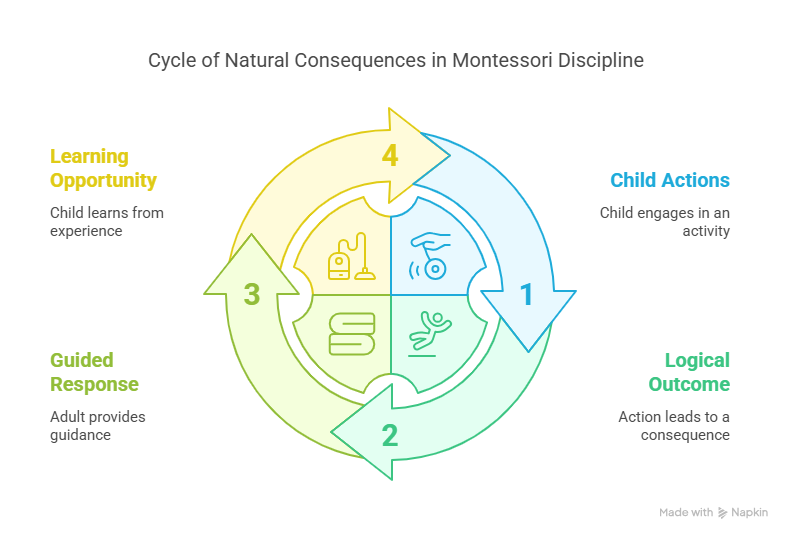
4. Modeling Respectful Behavior
Children are keen observers, mirroring the behaviors they see. In a Montessori environment, educators and parents lead by example, demonstrating patience, kindness, and calm problem-solving.
If a child struggles with frustration, an adult might say, “I can see you’re upset. Let’s take a deep breath together and talk about it.” By handling emotions constructively, adults teach children how to regulate their own emotions and interact with others respectfully.
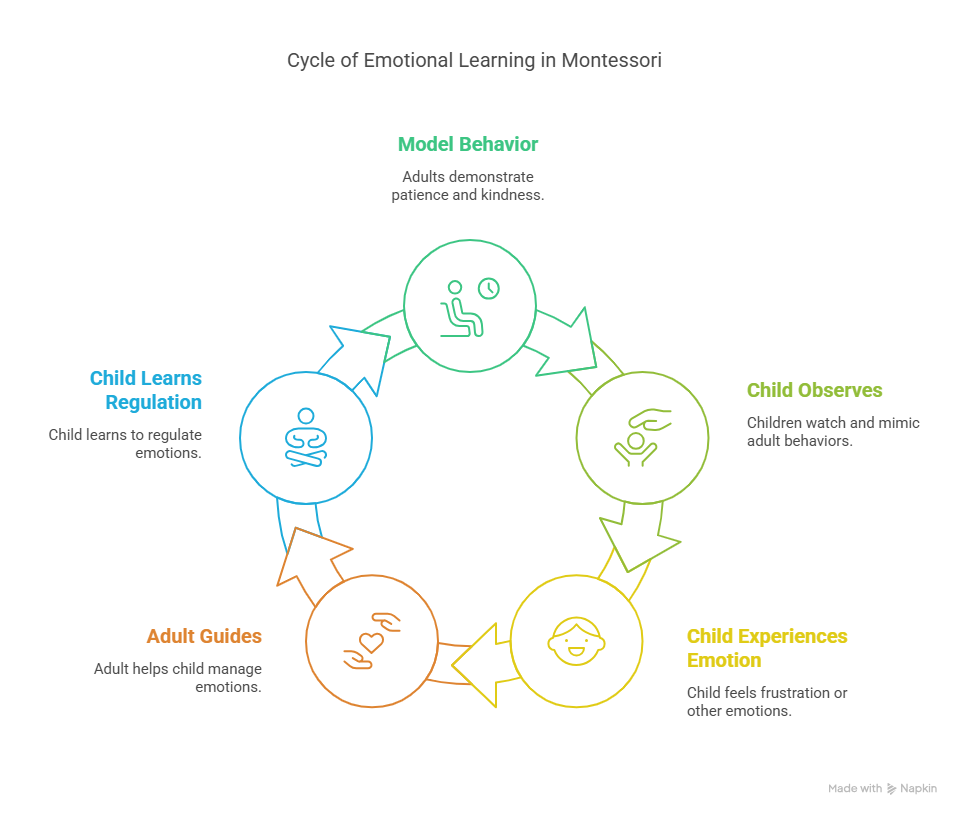
Gentle Montessori Discipline Strategies
1. Using Positive Language
The words we choose shape a child’s mindset. Instead of saying, “Don’t run inside!”, a Montessori teacher might say, “Let’s use our walking feet inside to keep everyone safe.”
This shift in language encourages children to focus on what they should do rather than what they shouldn’t, leading to more cooperative behavior.
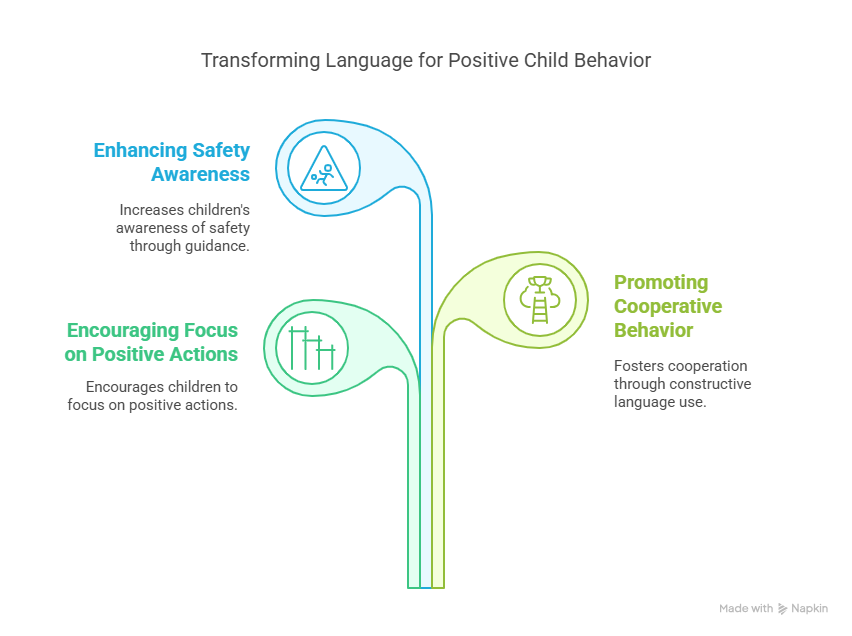
2. Encouraging Problem-Solving and Conflict Resolution
Instead of stepping in to resolve conflicts, Montessori educators guide children to find solutions themselves. The process includes:
- Encouraging children to express their feelings (“Can you tell me how you feel?”)
- Helping them understand others’ perspectives (“How do you think they feel?”)
- Finding a solution together (“What can we do to make things better?”)
This approach nurtures emotional intelligence, empathy, and independent problem-solving skills—valuable life lessons beyond the classroom.
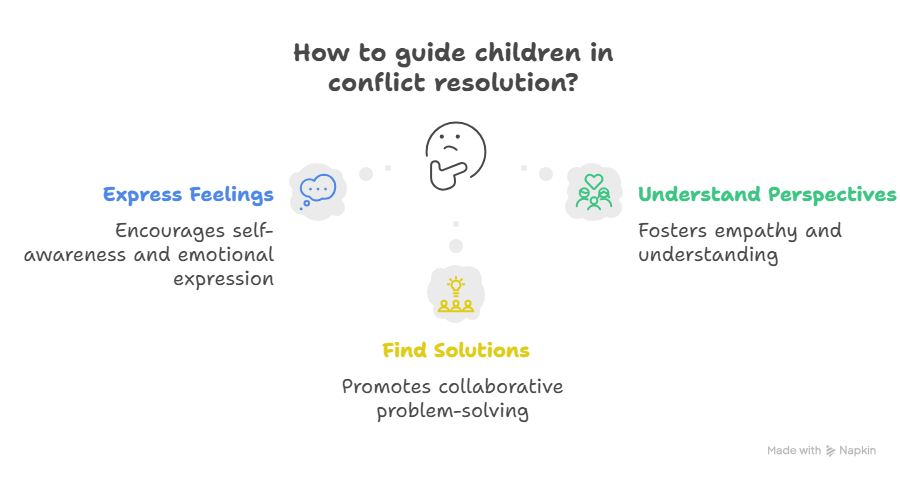
3. Providing Opportunities for Responsibility
Montessori children take on meaningful tasks that contribute to their community. Whether it’s watering plants, setting the table, or tidying up their space, these responsibilities help children develop a sense of ownership and pride.
Parents can apply this at home by involving children in daily chores. A simple “Can you help me put the spoons on the table?” makes a child feel capable and valued.
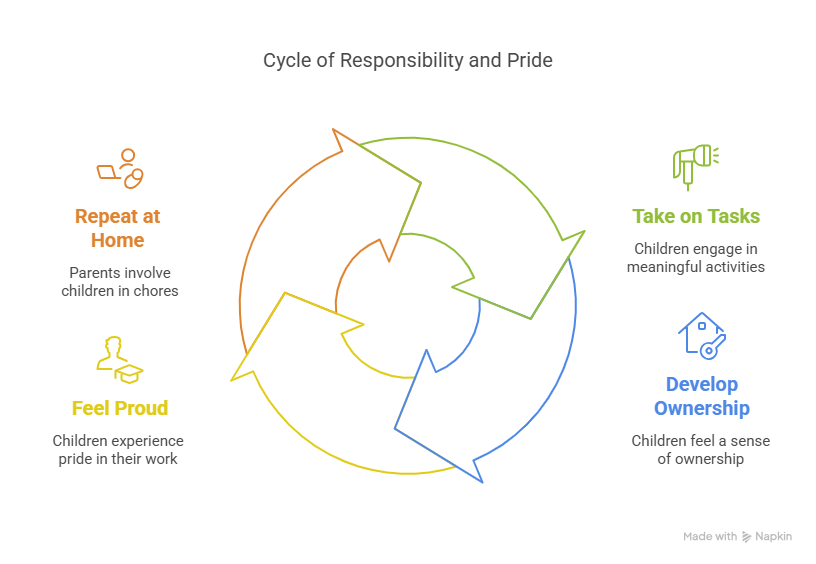
4. Creating a Prepared Environment
An organized, accessible environment supports independence and self-discipline. Montessori spaces are designed to allow children to move freely and make choices while maintaining order.
At home, parents can create a similar setup by ensuring that toys and learning materials are within reach and that everything has a designated place. This encourages children to take responsibility for their environment.
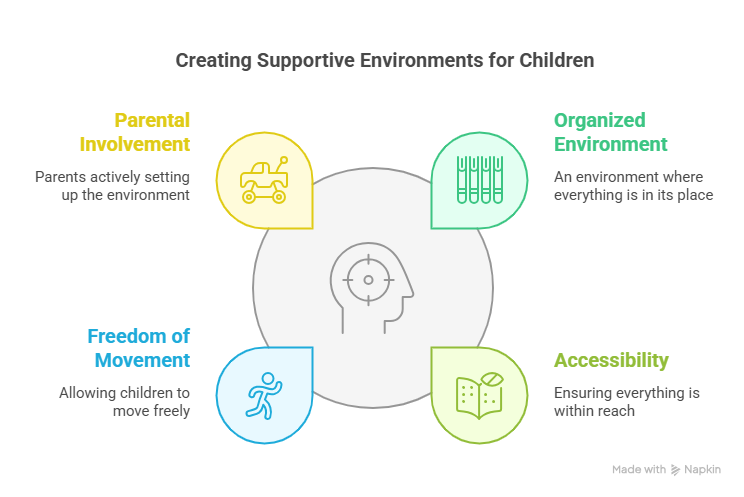
5. Remaining Calm and Consistent
One of the pros of Montessori discipline is that it fosters a sense of security and trust through consistency. However, a con of Montessori discipline is that it requires patience from adults, who must remain calm even when children test limits.
Rather than reacting with frustration, Montessori educators use redirection. If a child is throwing blocks, instead of saying, “Stop that!”, they might say, “Blocks are for building. Let’s build something together.” This teaches appropriate behavior without creating conflict.
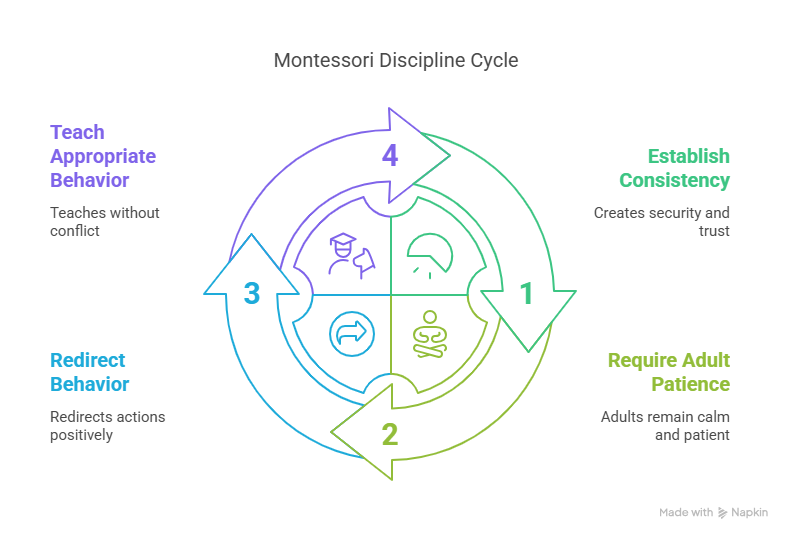
Challenges and Solutions in Montessori Discipline
1. When Children Resist Limits
Some children may push boundaries, testing their independence. In such cases, offering controlled choices can help. Instead of saying, “Put your shoes on now!”, try “Would you like to wear your red shoes or blue shoes today?” This gives the child a sense of control while ensuring the goal is met.
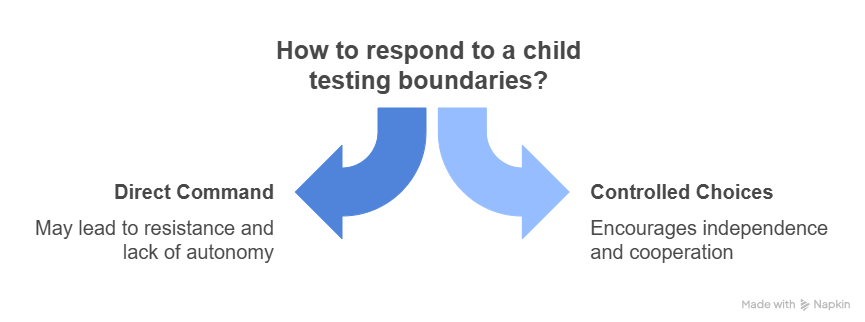
2. Handling Big Emotions
Strong emotions can be overwhelming for young children. Montessori discipline supports emotional regulation through:
- Deep breathing exercises
- Creating quiet spaces for self-calming
- Using emotion words (“I see you’re frustrated. Do you need a hug or some space?”)
These strategies help children navigate their feelings in a healthy way.
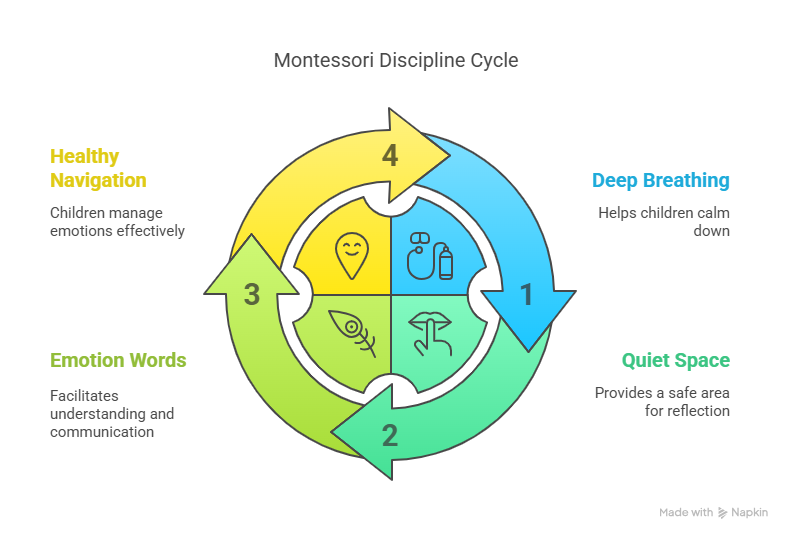
3. Addressing Misbehavior with Connection, Not Control
Instead of punishing misbehavior, Montessori educators look at its root cause. Is the child tired? Hungry? Feeling disconnected?
By addressing these needs, adults build trust and reduce negative behaviors. A child who feels heard and understood is more likely to cooperate willingly.
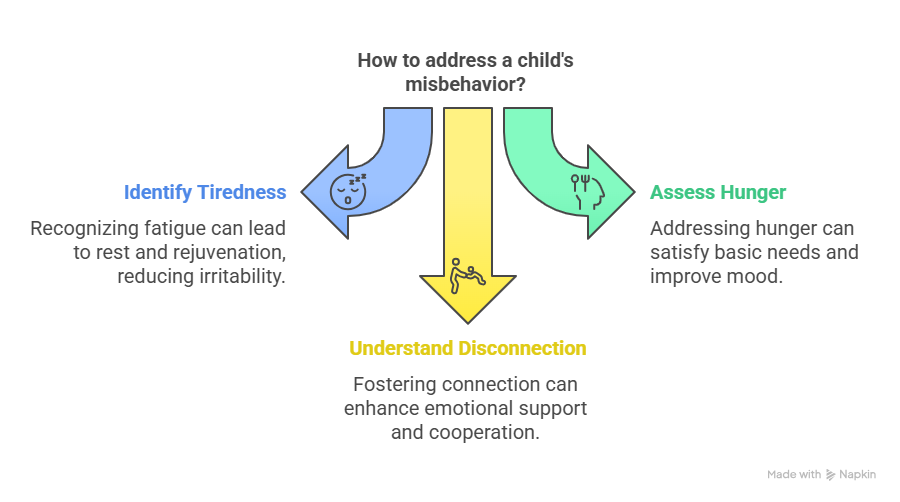
Conclusion
The pros and cons of Montessori discipline highlight a gentle, respectful approach that prioritizes long-term growth over short-term compliance. While it requires patience and consistency, the benefits—self-motivation, emotional intelligence, and responsible decision-making—are invaluable.
By implementing Montessori principles at home and in the classroom, we can raise children who not only follow rules but understand why they matter. More importantly, we empower them to become kind, responsible individuals who respect themselves and others.
After all, discipline isn’t about control—it’s about guidance. And with the Montessori method, that guidance is given with love, respect, and an unwavering belief in a child’s potential.


